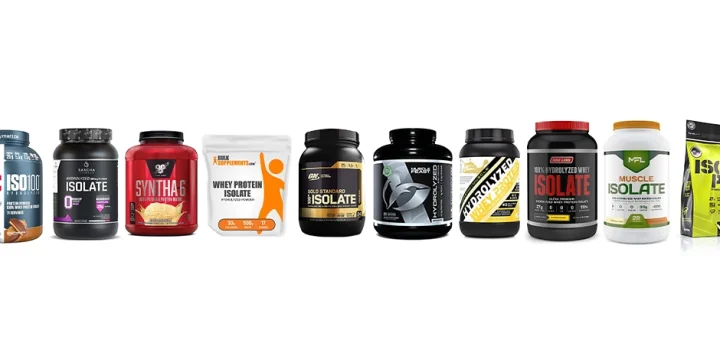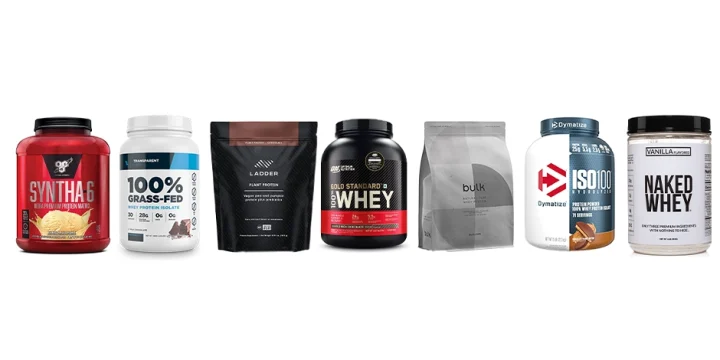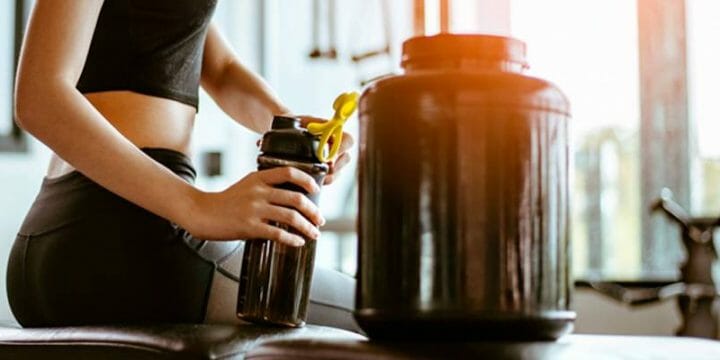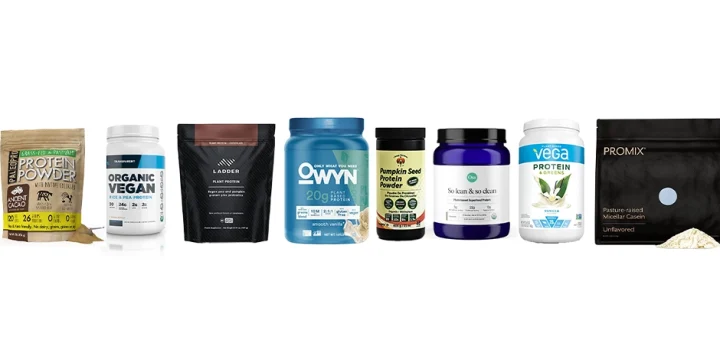Everyone’s advising you to use protein powders to reach your fitness goals. But the truth is they don’t always work.
During my eight-year career as a fitness trainer, I’ve seen people drinking protein shakes without getting results.
That’s because most beginners don’t know how to use powders the right way.
This guide, created with a dietitian, explains how to effectively use protein powders and their benefits.
Here’s what you need to know.
Quick Summary
- Protein powders are effective for muscle gain and weight loss when used correctly, supplementing daily protein intake and providing essential amino acids.
- Proper use of protein powders involves combining them with physical activity and a high-protein diet, not relying on them solely.
- An average adult should consume 0.8 grams of protein per kilogram of body weight daily, which protein powders can help achieve.
- Personally, I've found that integrating protein powders into a balanced diet and exercise routine enhances my overall fitness results.
Do Protein Powders Actually Work?
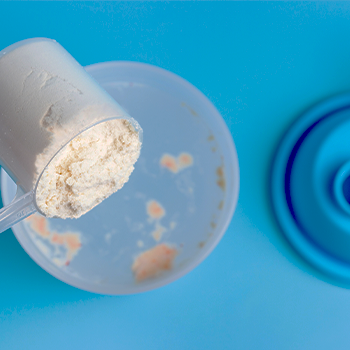
Protein powders work when it comes to two things:
- They help you reach your required daily protein intake
- They equip you with the essential amino acids that you can’t get from food
Both outcomes can help you gain muscle mass and lose weight. But there’s no guarantee that either of those things will actually happen.
Here’s the thing — protein shakes alone can’t meet all your body’s needs.https://totalshape.com/diet/how-much-protein-to-gain-muscle/
For example, let’s imagine a person who eats a lot of junk food and zero protein-rich foods. They also never exercise.
But then they start drinking a protein shake every day. What do you think? Should they expect great results?
The answer is absolutely not.
To benefit from protein supplements, combine them with physical activity and a high-protein diet [1]:
“It’s a combination of eating protein and carbs, as well as strength training.”
- Leslie Bonci, Sports Dietitian for the Kansas City Chiefs & Owner of Active Eating Advice
It would be wrong to expect results just because you’re drinking protein shakes.
If nothing else, it’s possible that you still won’t meet your required protein intake from powder alone.
An average adult should consume 0.8 grams of protein per kilogram of body weight [2].
Protein powders are beneficial for muscle growth and weight loss when used correctly.
Let’s look at how they produce these two benefits in more depth.
Benefits: Muscle Gain
When combined with resistance training, protein stimulates muscle protein synthesis [3].
Synthesis of new protein is crucial for gaining muscle mass because protein is constantly being broken down in the body.
So, if you want to grow your muscles, you need to produce more protein than you’re breaking down.
This isn’t possible if you’re not fueling your body with enough protein.
A protein supplement — such as protein powder — can help you with that.
Joe Johnson, an online weight loss coach with a lot of remote workers as clients, says that protein powder comes with a lot of benefits. A scoop of the average protein powder contains around 20g of protein.
It also generally tastes good, mixes well with water, and takes seconds to drink. He reminds his clients though that to build muscle mass, protein powders are not enough — there has to be consistent and intense exercise sessions as well.
Protein powders efficiently bridge dietary gaps, ensuring optimal protein intake for muscle development, especially beneficial for those with high muscle gain goals.
Benefits: Weight Loss

Protein shakes may lead to weight loss, but not directly. Instead, they lead to three outcomes that promote it.
We’ll go through them one by one.
1. Accelerated Metabolism
Protein shakes will help you burn more calories, i.e., boost your metabolism. And an accelerated metabolism can lead to weight loss.
But how do protein shakes help you burn more calories?
Well, protein has a thermic effect. That means your body needs a lot of energy to digest it — more than it needs to digest carbs or fat. So, your body will burn more calories during digestion [4].
As a result, you’ll shed a few pounds without cutting your calories or making any other changes to your lifestyle.
2. Feeling Full

Protein also reduces hunger, so you’ll be less likely to give in to your cravings if you drink protein shakes on the regular.
Whey protein seems to be especially effective in controlling your appetite.
One study found that whey increases PYY and GLP-1 levels while simultaneously decreasing ghrelin levels [5].
Here’s why that’s important:
PYY and GLP-1 reduce your appetite
Ghrelin increases your appetite
Because of that, you’ll feel full for a longer period of time — even if you don’t change your diet.
3. Less Belly Fat
Research suggests that high-protein diets reduce fat mass, especially in your abdominal area [6].
Belly fat is notoriously hard to get rid of because it partly consists of visceral fat.
Visceral fat surrounds your internal organs and can’t be eliminated solely with physical activity.
Whey protein seems to be particularly helpful in battling it. Protein powders contain lactoferrin and immunoglobulin, which help protect against obesity and promote fat loss [7].
Combine Protein Powder With Proper Diet

To make your protein shakes work, combine them with foods rich in protein.
Here are a few examples of such foods to help get you started:
- Poultry (e.g., chicken, turkey, goose)
- Red meat (e.g., beef, veal, lamb)
- Dairy (e.g., milk, cheese, yogurt)
- Fish and seafood (e.g., fish, crabs, prawns, lobster, clams)
- Nuts and seeds (e.g., almonds, hazelnuts, walnuts, pumpkin seeds, sesame seeds)
- Eggs
From my own fitness journey, I've learned the importance of avoiding foods high in unhealthy fats. Whether I was aiming to lose weight or build muscle, cutting out these fats significantly improved my progress. Unhealthy fats not only hinder muscle building but also make weight loss more challenging.
The list of foods you should avoid includes:
- Fried food (e.g., fried chicken, chips)
- Processed meat (e.g., sausages, bacon)
- Desserts (e.g., fatty cakes)
- Fast food (e.g., burgers, french fries, sandwiches)
Lastly, try to eat every three hours to give your metabolism an extra kick and drink more water to lose weight and build muscles faster.
FAQs
Should I Take Protein Powder Every Day?
You should take protein powder every day if you’re not meeting your recommended dietary allowance with your diet.
References:
- https://pubmed.ncbi.nlm.nih.gov/29462923/
- https://intermountainhealthcare.org/blogs/how-much-protein-is-simply-too-much
- https://pubmed.ncbi.nlm.nih.gov/21795443/
- https://www.nature.com/articles/ijo2014216
- https://www.ncbi.nlm.nih.gov/pubmed/25563737
- https://www.physiology.org/doi/full/10.1152/japplphysiol.00152.2014
- https://www.tandfonline.com/doi/abs/10.1080/10408398.2014.995264
About The Author
You May Also Like

